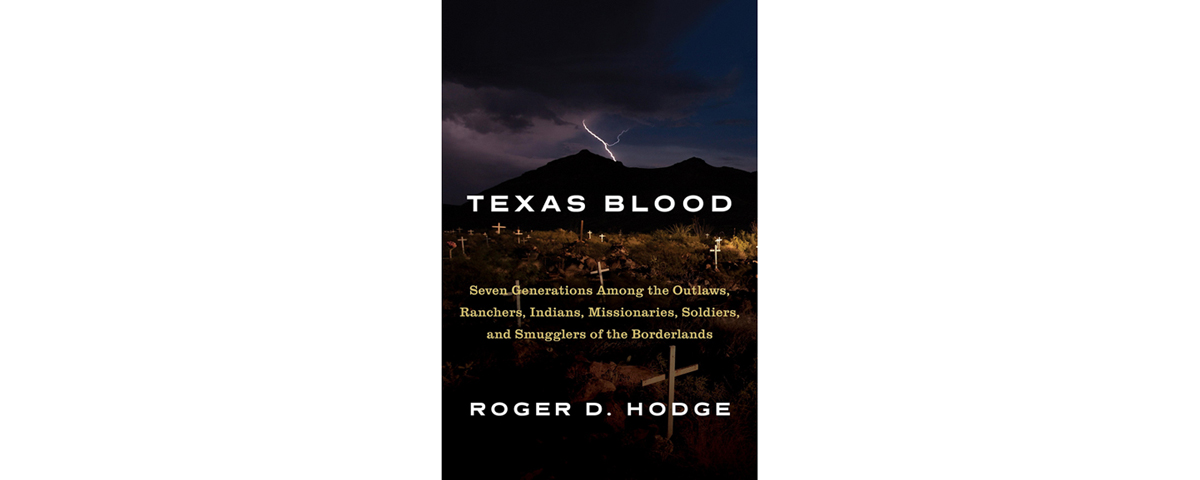Texas Blood: Seven Generations Among the Outlaws, Ranchers, Indians, Missionaries, Soldiers and Smugglers of the Borderlands, by Roger D. Hodge, Alfred A. Knopf, New York, 2017, $28.95
Texas Blood began as an essay in Harper’s, but author and former Texan Roger D. Hodge—who now lives in Brooklyn—expanded his observations into a full-fledged book on the Lone Star State in which seven generations of his forebears struggled through the best and worst it had to offer. Earlier Hodge’s essay ‘Blood and Time: Cormac McCarthy and the Twilight of the West’ was a finalist for the National magazine Award for criticism.
Lodge knows the legends and the histories, but he also remembers the more intimate, personal Texas of his formative years. “As I reread the conventional histories,” he writes, “I remained dissatisfied by their generalizations and hoary mediations on Texas ‘character’.…The revisionist historians, the borderlands scholars and the ethnohistorians were far more useful, but even so I was drawn to the first-person accounts of exploration and contact and Indian captivity; the travel memoirs of fur traders and scalpers, soldiers and profiteers and pioneer wives; the apologetics of utopian visionaries and confidence men; the letters home of sheep farmers and cowboys; the travelogues of 19th-century journalists and architects.”
Returning to the state of his roots, Lodge traces the steps of a wide variety of these lesser-known individuals and their place in what combines present-day travelogue with glimpses into the past of those familiar sites, putting them in a fresh context, both personal and historic. He goes back to the Spanish castaway turned explorer Álvar Nuñez Cabeza de Vaca and his African slave Estebanico, as well as the Jumano people they encountered in their trek. He touches on such items as Polish colonist Kalikst Wolski’s remedy for snake-bite, which Lodge pronounces useless for rattlesnake venom, “but for the smaller green snakes that were even more common, it worked splendidly, especially because they were not, in fact, poisonous.” He surveys the vast region that was once a Comanche empire. “By lashing the Spanish and Mexican frontiers with raids for more than a century, the Comanches unintentionally prepared the way for the American conquest of northern Mexico.”
He seeks insights from his grandmother, Anale Hodge (with limited success), and ponders: “What was it that brought my people to this particular place? Why would anyone attempt to settle in this unforgiving landscape?”
Will this be of interest to scholars of Texas history? Well, we are talking Texas here, aren’t we?
—Jon Guttman





